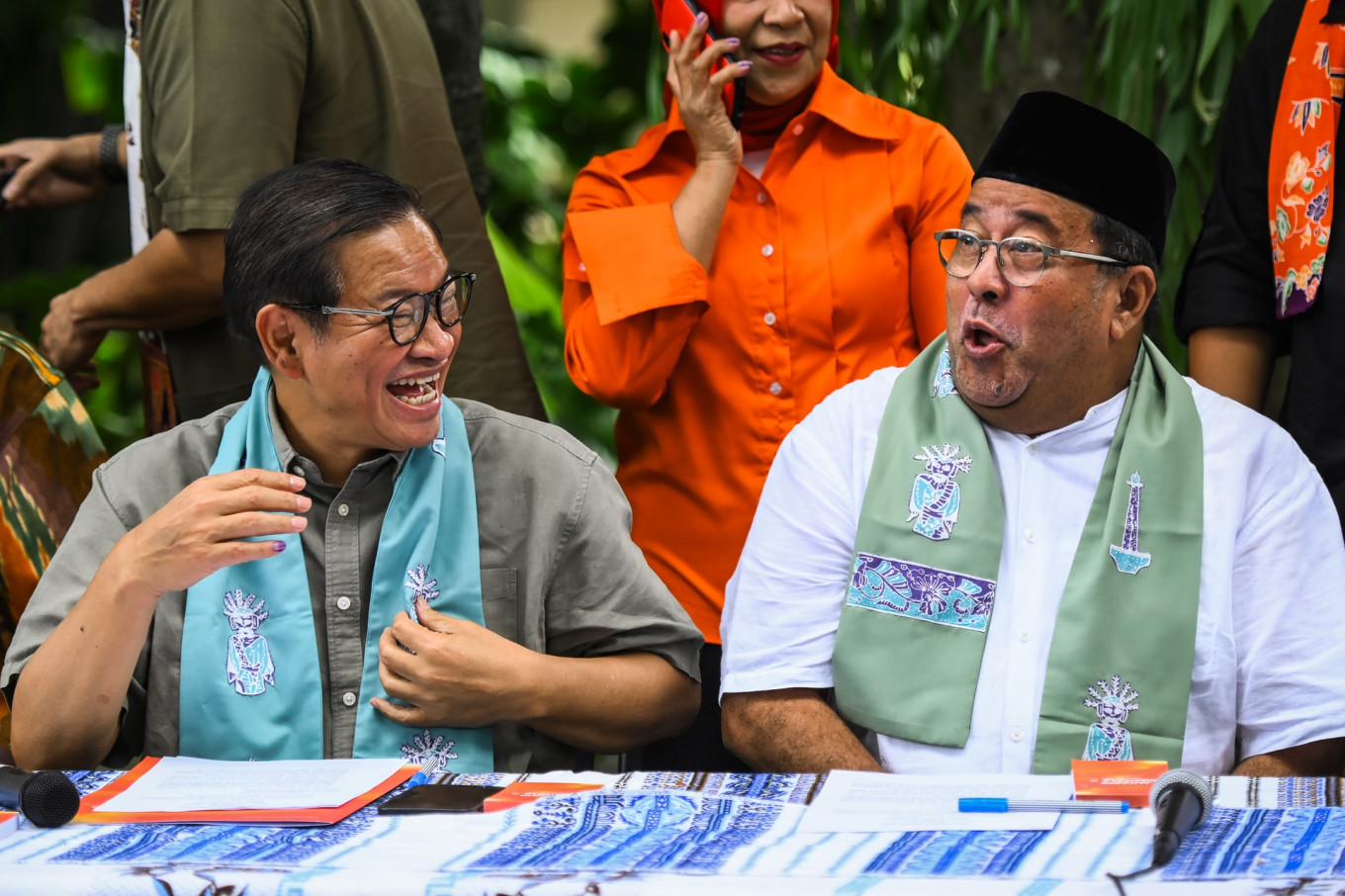Popular Reads
Top Results
Can't find what you're looking for?
View all search resultsPopular Reads
Top Results
Can't find what you're looking for?
View all search resultsNarrow margin
Dragging the election through to January would certainly look like a misguided political strategy.
Change text size
Gift Premium Articles
to Anyone

The gubernatorial election in Jakarta has always been one of the most-watched polls in the country. The city is after all, at least for the time being, still the fully functioning capital of Indonesia.
And since Joko “Jokowi” Widodo, then a little-known mayor of Surakarta, Central Java, made a successful run for the city’s governorship in 2012, a springboard that later catapulted him into the country’s presidency, politicians have put serious money and effort into winning the race in Jakarta.
The Onward Indonesia Coalition (KIM), the ruling coalition of President Prabowo Subianto initially thought that it would have an easy win in Jakarta, especially with its choice of gubernatorial candidate, the popular and media-savvy former governor of West Java Ridwan Kamil.
The odds of Ridwan losing the election seemed small, given the fact that the coalition consists of 10 major political parties, which are in possession of a massive political machine in Jakarta and beyond.
It would also look good for the new administration of President Prabowo to win an election in Jakarta, especially after a series of victories in places like Banten and West, Central and East Java.
On paper, Ridwan could easily beat Pramono Anung Wibowo, a former cabinet secretary in the administration of then president Joko “Jokowi” Widodo, whose electability rating was in the single digits when the Indonesian Democratic Party of Struggle (PDI-P) registered his candidacy in August this year.

But in one of the greatest turnaround success stories this regional election season, Pramono and his running mate, former actor Rano Karno, turned the tables on Ridwan and in the weeks leading up to the Nov. 27 balloting managed to outperform the Golkar politician in opinion polls.
In the last days of campaigning, Pramono was able to consolidate his lead in the polls, especially by focusing his campaign on Ridwan’s and his running mate Suswono’s gaffes and missteps.
It also helps that in the last week of the election campaign, Pramono got a political boost from unsuccessful presidential candidate and former Jakarta governor Anies Baswedan, who not only gave his full-throated endorsement but also instructed that his political infrastructure left over from the Feb. 20 presidential election be used to help deliver votes for the PDI-P candidate.
On the eve of the Nov. 27 ballot, Pramono expected that he could get at least 53 percent of the popular vote and prevent the possibility of a run-off (Jakarta is the only province in the country which requires a candidate to win more than 50 percent of the vote to win a local election).
Pramono was correct only in his ultimate objective because as the final tally from the Jakarta General Elections Commission shows Pramono barely scraped over the 50-percent threshold by a little more than 2,000 votes.
With that razor thin margin, many within Ridwan’s camp sensed an opening that they could try to litigate in the Constitutional Court with the aim of forcing Pramono into a run-off vote, possibly in January.
But dragging the election through to January would certainly look like a misguided political strategy.
The low turnout from the November election could be an indication that voters are already suffering from political fatigue and a run-off ballot in January would likely see a higher percentage of absenteeism. Only 57.5 percent of 8.21 million registered voters showed up at polling stations on the gubernatorial voting day; in February, around 79 percent of eligible voters cast ballots in the presidential and legislative polls.
And if the solution to boost voter turnout is by resorting to vote buying, as we saw in the days leading up to November election, then it would certainly be the wrong one.
Besides, the ruling coalition has already won in so many regional elections, allowing an opposition candidate to win would give the impression that some semblance of democratic practice can still prevail.
The winner doesn’t need to take it all.










